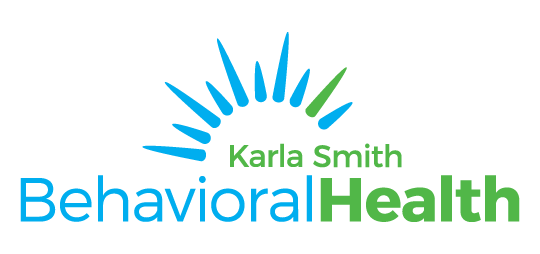IT TAKES A LARGER VILLAGE
by TOM SMITH
They say “it takes a village” to raise a child and that slogan is true enough. From pre-historic times to “not so long ago”, the clan, tribe, extended family, or small group did in fact help raise the children. By the time we came along, the raising of children was narrowed down pretty much to the immediate family.
Since Fran and I moved away from our childhood homes and all the multiple relatives and friends who lived there, got married in Ottumwa, Iowa, and had our twins there before moving to Tulsa, another new city, we raised our kids primarily within our nuclear family. It actually worked out pretty well. Until Karla was 19, in college, when she mysteriously plunged into clinical depression.
We immediately needed a bigger village. But we didn’t know it at first. After all, she was 19 and on her way to being an adult. Our village days were over, right?
Wrong. That’s when we required more help in supporting her, finding resources, and adjusting to her changed behavior. We learned later that our baffling and threatening situation was duplicated with millions of other families, many of whom still don’t know how badly they too need a larger village. That number is in the millions because the population of the USA is around 320 million and the National Institute on Mental Health estimates that one in five people are dealing with a form of mental illness each year.
When mental illness comes into a family as a child or an adult, we are summarily moved to a city named Chaos. And we will stay there unless we create a village called Recovering.
In that new village, there is a street named Therapists where counselors, psychologists, and psychiatric nurses live next to a cull de sac for psychiatrists. Around the corner are the homes of medical doctors and nurses who help integrate general physical health with the mental health specialists. One block west are homes for social workers, school counselors, and occupational therapists. There is a mental health hospital within walking distance with a fully trained staff in all areas of mental illness, suicide prevention, and treatment recovery procedures. Two blocks north is the Karla Smith Behavioral Health center. To the east a few blocks there is a fitness center with an indoor pool and which also sponsors yoga classes and a community meditation room. There are a number of churches nearby with ministers and staff who understand the relationship between mental health, physical health, and spiritual growth. There are sober-living group homes not far away in case our loved one with mental health or substance abuse issues requires that kind of living arrangement and social interaction. If an appropriate job is helpful, there are a number of opportunities a short bus ride away. A park with trees and open spaces is a brief walk down a small hill where a bike and walking path weaves in and out of the trees surrounding a small lake. Three blocks south is the street where the family lives. Everyone in that home and in the small village knows about mental illness and they apply some helpful strategies to cope with it. There are many such villages, some of them within large cities and some of them in rural communities. But there is a need for many more of them.
This picture of a village focused on mental health is idyllic and often unavailable in the real world. But it does describe the kinds of services needed for managing mental illness within a community setting. Each situation is unique and adjustments must be made depending on available resources but as close as a family can get to this description, the more likely the recovery will be. The creation of a larger village is critical, regardless of the specifics.
Organizations like Karla Smith Behavioral Health are valuable centers for providing and finding the help families so desperately need to cope with these devastating problems. These organizations are village-makers.
In future columns, I will describe some of these village streets, homes, and service centers in more detail. In any case, it does take a large village of supporters, professional and non-professional, in many categories to cope with mental illness or substance abuse.
The larger the village, the better.
If you have comments or questions about these columns, please email Tom Smith at tom.smith@karlasmithbehavioralhealth.org.
To learn more about the services of Karla Smith Behavioral Health go to www.karlasmithbehavioralhealth.org.
